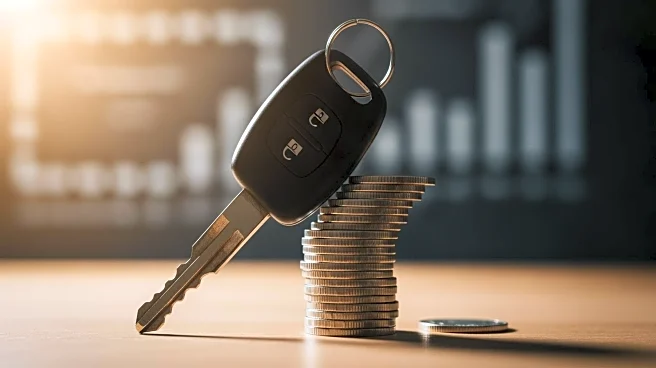What's Happening?
A significant group of American borrowers is falling behind on their car payments, indicating potential economic distress. Subprime borrowers, those with credit scores below 670, are experiencing high delinquency rates, with 6.43% being at least 60 days
late on their car loans. This rate is worse than during past recessions, and car repossessions are at their highest since the Great Recession. The financial stress is exacerbated by record car prices, high interest rates, and inflationary pressures.
Why It's Important?
The rising delinquency rates among subprime borrowers highlight economic vulnerabilities and potential distress in the U.S. economy. Car loans are typically prioritized by borrowers, and defaults indicate significant financial strain. The situation reflects broader economic challenges, including inflation and high interest rates, affecting lower-income consumers. The economic impact could extend to consumer spending and overall economic stability.
What's Next?
Economists are concerned about the potential impact of a weaker labor market and increased layoffs on subprime borrowers. The situation requires monitoring of economic indicators and potential policy responses to address financial distress. The impact on consumer spending and economic stability will be closely watched.
Beyond the Headlines
The situation underscores broader economic disparities and the challenges faced by lower-income consumers. The K-shaped economy highlights the divide between those benefiting from stock market gains and those struggling with financial obligations. The situation raises ethical questions about economic equity and the impact on vulnerable populations.


















